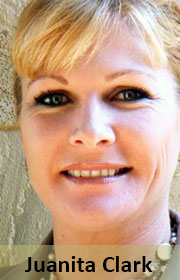 News that Parkhurst residents have embarked on a project to deliver high-speed fibre access to homes and businesses in their neighbourhood represents a watershed moment that could lead to a broader roll-out of fibre to the home (FTTH) in South Africa.
News that Parkhurst residents have embarked on a project to deliver high-speed fibre access to homes and businesses in their neighbourhood represents a watershed moment that could lead to a broader roll-out of fibre to the home (FTTH) in South Africa.
In areas like Parkhurst in Johannesburg, where housing is fairly dense by South African standards, the monetisation of FTTH should be a lot quicker, especially where the home owners’ associations lobby their communities and ensure the necessary minimum uptake to make the projects feasible.
The Parkhurst project, announced last week, is a watershed moment for the industry. It might just become the model that we have been waiting for, something other neighbourhoods can borrow from.
And who wouldn’t want FTTH? Access to advanced broadband makes private property more valuable. In other parts of the world, FTTH is among the utilities that owners and renters especially value.
According to the FTTH Council Americas, fibre connections make homes easier to sell and rent. A recent survey in the US by market research and consulting firm RVA LLC shows that buyers of houses and apartments are willing to pay a 2% premium for a fibre-connected home, and renters are willing to pay on average 15% above homes what they will for homes that don’t have fibre.
In the Asia-Pacific region, prices for FTTH-ready properties have increased by between US$4 000 and $14 000. In Taiwan, FTTH-ready homes have seen their valuations rise sharply, too. This is mainly because these homes are considered a future-proof investment.
The benefits of FTTH are even greater if one considers that communities can be linked through communications, and can use it for video surveillance for security and for automated meter readings. People can also remotely manage their homes more easily.
Yet in South Africa, property developers and estate agents do not understand the benefits of fibre. It is going to take a huge effort to get them to realise that FTTH translates into real money.
Property owners with home fibre would be well advised to advertise this fact prominently when they’re selling their houses.
The property market in general is out of step with market realities. Historically, property had everything to do with location, size and finishes. Soon, high-speed telecommunications will be a key factor as well.

In the commercial sphere, high-speed connectivity will soon be an important commodity for property management companies, too. They have the ability to provide their tenants with super-fast broadband, in turn allowing tenants to be more productive and save money by moving to the cloud. They can capitalise on fibre for security and remote management of office blocks and business parks. They will also attract international clients with intensive bandwidth requirements.
The demand for fibre-ready homes will grow and market pressure will drive roll-out. Just three years ago, telecoms operators were warning that FTTH in South Africa doesn’t make financial sense and that mobile will remain the dominant technology.
It’s hard to dispute that mobile will remain a key access method in South Africa. However, smart homes and smart cities are built on fibre.
- Juanita Clark is CEO of the FTTH Council Africa




